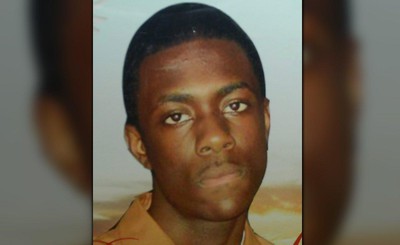Two cops are being disciplined for their roles in the shooting death of an unarmed Bronx man, police sources said Thursday.
NYPD Sgt. Scott Morris and Officer John McLoughlin faced departmental charges in connection with the killing of 18-year-old Ramarley Graham in February 2012. On Thursday, their cases were settled.
Morris will be suspended for 30 days without pay, then will resign without the “good guy” letter that would have allowed him to carry a weapon, sources said.
McLoughlin, meanwhile, accepted a penalty of 45 lost vacation days and was placed on dismissal probation for a year — meaning he could be fired for any infraction, sources said.
The cop who shot and killed Graham — Richard Haste — quit the force earlier this year, shortly before he was going to be fired.
For Constance Malcolm, Graham’s mother, who has repeatedly accused police of murder and has sought the release of Morris’ and McLoughlin’s disciplinary records, there is no justice.
“I’m glad Sgt. Morris will be off the force within a month,” she said, “I am calling on the NYPD and the de Blasio administration to reconsider the probation for McLoughlin, and fire him instead, and to also release the files related to my son's murder that they have been fighting to continue withholding in court.”
Morris was the supervisor on scene when McLoughlin kicked in the door to the Graham family’s home and entered with Haste.
Police say they thought Graham was armed, but no weapon was ever found.
Haste was indicted for manslaughter, but a judge tossed the indictment on a technicality and another grand jury decided not to charge him.
He was later brought up on departmental charges and resigned in March, after an internal trial in which he testified that he handled the deadly encounter flawlessly.
“The tactics were the best representation of my training and experience given the situation I encountered,” Haste said.
He also revealed that while he underwent counseling and second-guessed his own actions he ultimately blamed Graham for rushing at him, then ducking into a bathroom.
“What was he thinking?” Haste asked. “If he didn’t have a gun, why would he come toward me? I know what I did was justified and I protected my life and my team based on what we knew at the time. I was not pleased with the result.”
Neither Morris nor McLoughlin was charged with a crime.
But Morris was hit with an administrative charge of failure to supervise, and Morris was accused of using poor tactics.
When Morris and McLoughlin arrived at NYPD Headquarters Thursday, they agreed to plead out their cases, sources said.
“They decided they didn’t want to go to trial,” one source said. “They negotiated a disposition and accepted what was presented to them. They really didn’t have much choice.”
A second source said the cops were led to believe that had they gone to trial they would have been fired.
Morris and McLoughlin also agreed to a public disclosure of the penalties against them.
The NYPD has in recent months said it could not release disciplinary records without an officer's approval because it is prohibited from doing so by section 50a of the state's civil rights law.
A source familiar with the negotiations said that the agreement the penalties would be publicly disclosed — apparently the first such stipulation since the department two years stopped releasing disciplinary records citing section 50a — might be a tactic the NYPD uses in the future to avoid criticism from both the media and lawyers of failing to be transparent.
“Obviously, the case is a very important case. As we move forward we’ll be doing it on a case by case basis," NYPD Commissioner James O'Neill said Friday of the agreement to disclose the penalties the cops received. "This shouldn’t be seen as precedent.”
The lawyers for Morris and McLoughlin had no comment.

